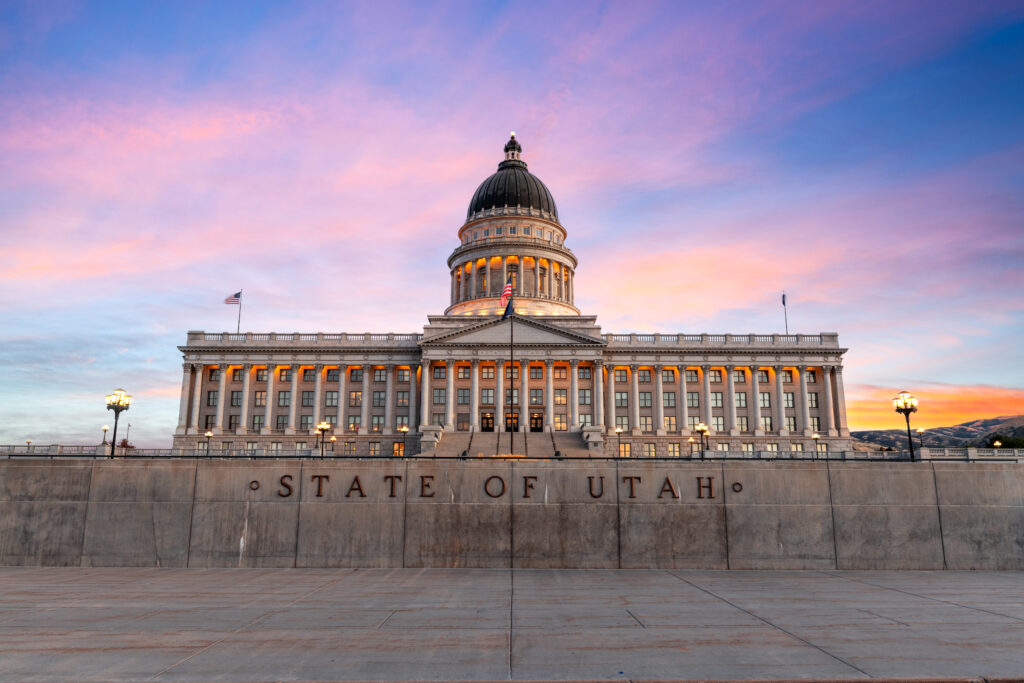Utah GOPers Pass Gerrymandering Scheme, Advance New Map to Retain All the State’s Congressional Seats

Republicans in Utah advanced a new congressional map Monday favored to help their party retain all four of the Beehive State’s congressional seats — despite a recent court ruling requiring a fair map.
And to bolster the chances of success for their gerrymander campaign, GOP lawmakers also approved an audacious measure that, while framed as a check on partisan bias, would allow them to rig the process of determining whether or not a map is politically biased.
The state’s Redistricting Committee voted 8-to-2 along party lines to advance one of five proposed maps to the legislature for a full vote, as part of a court-ordered process to select a new congressional map.
Under the new map, the GOP still has an advantage in all four of the state’s congressional districts. But at least one district was redrawn to be competitive enough for a Democratic pickup — Trump won the district by 6% in 2024 — while another slightly loosened the GOP’s advantage, with Trump winning the district by 11% in the last election. It was the only map of the five proposed in which the GOP has an advantage in all four districts.*
But Utah Republicans appear to be aware that the map could be struck down under Proposition 4, the state’s anti-gerrymandering law. So they came up with a safeguard in the form of a bill to rig the map-drawing process, which was passed through both chambers Monday.
The measure, introduced by Sen. Brady Brammer (R), would essentially rewrite Prop 4 to require that each congressional district have a partisan vote share roughly in line with statewide election results over the last 12 years, in which the GOP has consistently won by comfortable margins. Separately, a proposed map would be compared to an “ensemble” map created via computer simulation, to similarly ensure it corresponded to statewide results. And GOP lawmakers would control the process, including the data and metrics used to create the simulation.
Brammer pitched the bill as providing a clearer standard for Prop 4’s requirement that a map not unduly favor one party over the other. In fact, the measure appears to lock in the GOP’s power to draw a congressional map with four Republican seats. And it severely restricts judges’ power to strike down a map, by limiting their review only to the GOP-friendly test in the bill.
“What’s clear to me is that altering Prop 4 would be violating Prop 4,” said Sen. Luz Escamilla (D).
“Utahns passed Proposition 4 in 2018 to ensure districts are drawn with transparency, accountability, and respect for communities rather than partisan interests,” Elizabeth Rasmussen, the executive director of the anti-gerrymandering group Better Boundaries, said in a statement issued before Monday’s hearing. “The Legislature has a duty to follow the law and respect the will of the people. Brammer’s bill would weaken Prop 4 and threaten the fair process voters put in place.”
In 2018, Utah voters approved Proposition 4 — a ballot measure to create an independent redistricting commission to draw fair maps. But in 2020, the legislature repealed Prop 4 and drew a gerrymandered map.
After pro-voting groups sued, the Utah Supreme Court ruled the gerrymandered map was unconstitutional. It ordered lawmakers to present a new map by Sept. 25, for a public comment period.
The redistricting committee instead presented five new maps, allowing the public 10 days to comment on each one, taking those comments into consideration before Monday’s vote.
The map chosen by the redistricting committee Monday was the only one of the five proposed maps in which the GOP retains a partisan advantage in all four of Utah’s congressional districts.
After the full legislature votes on the new congressional map, a judge will either approve or deny the map, based on whether or not it complies with the parameters set by Prop 4.
*This paragraph has been corrected from an earlier version which reported that the map would create four safe Republican seats.